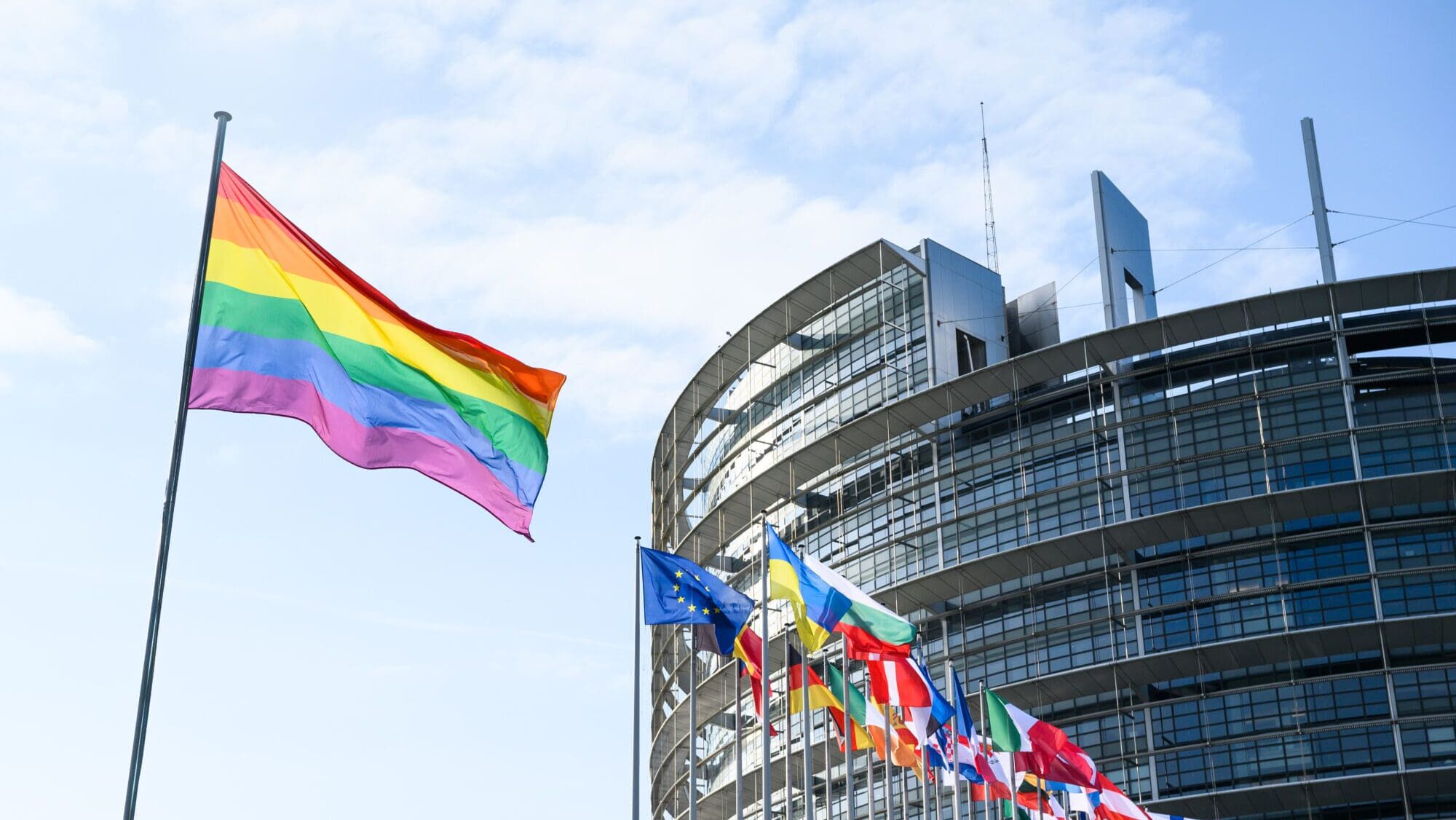
Photo: Philippe STIRNWEISS © European Union 2023 – Source : EP
Ahead of the planned first sitting of the newly elected European Parliament (EP) on July 16th, moves are underway to ensure that it is a more ‘LGBT inclusive’ workplace, according to leaked internal emails seen by The European Conservative.
The emails reveal plans by DG PERS, the EP’s human resources division, to conduct a series of informal events welcoming new LGBT staff—while ensuring that the chamber remains a “fully inclusive employer for LGBTIQ+ staff.”
According to emails, the series of events is being partially directed by Luxembourg-based non-profit Inspiring More Sustainability (IMS), which specialises in promoting workplace equality. The company’s head of LGBT inclusion, Priscilia Talbot, is scheduled to give a talk on encouraging gay acceptance in the EP.
Following speakers from the DG PERS and a series of events designed to promote networking among new LGBT members of staff, the week’s events will culminate in a screening of the 2023 Ukrainian comedy Lessons of Tolerance, about a socially conservative Ukrainian family living with a gay man in order to avail themselves of European Union grant money. The film is described as:
Ten uneasy lessons in a tiny apartment in Ukraine. Teacher Nadia launches an EU-funded LGBT+ acceptance programme. A typically intolerant family hesitantly decides to sign up to receive tempting financial supplements. Their task is to spend 24 non-alcoholic days with Vasyl, who is gay but might also be the best friend, long-forgotten relative, good therapist, attentive social worker, or a plumber photographer. Beer-loving mechanic Zenyk, an actress of a never-been theatre Diana, and impatiently aggressive Denys will tame hate and envy. Through amusing games, they will learn about homophobia, equality, empathy, gender discrimination, and self-fulfilment.
Recent years have seen the EP and other EU institutions take a militant line on LGBT issues in Brussels’ dealings with both Russia and also traditionalist-minded member states such as Poland and Hungary. Last month equality ministers agreed in Brussels to pursue gay rights across the bloc as a whole.
A major in-house lobbyist on LGBT matters within Brussels is the Parliament’s LGBT ‘intergroup’ that operates with the assistance of 162 MEPs and monitors policy making within EU institutions as well as member states in conjunction with a transnational team of civil society NGOs. Below the surface rumours of an embedded ‘gay mafia’ have long circulated in Brussels.
Direct discrimination against homosexuals is banned within Article 176 of the Parliament’s code of conduct, with MEPs found guilty liable to pay financial penalties or be restricted from representing the Parliament in interinstitutional negotiations.
Despite an increase in the number of conservative MEPs, the European Commission is expected to sign off on another five-year LGBT strategy in the months ahead. The last five years have seen a greater emphasis on the monitoring of member states to implement socially liberal policies, as well as demands that EU institutions ‘lead by example’ by ensuring a gay-friendly working environment.
